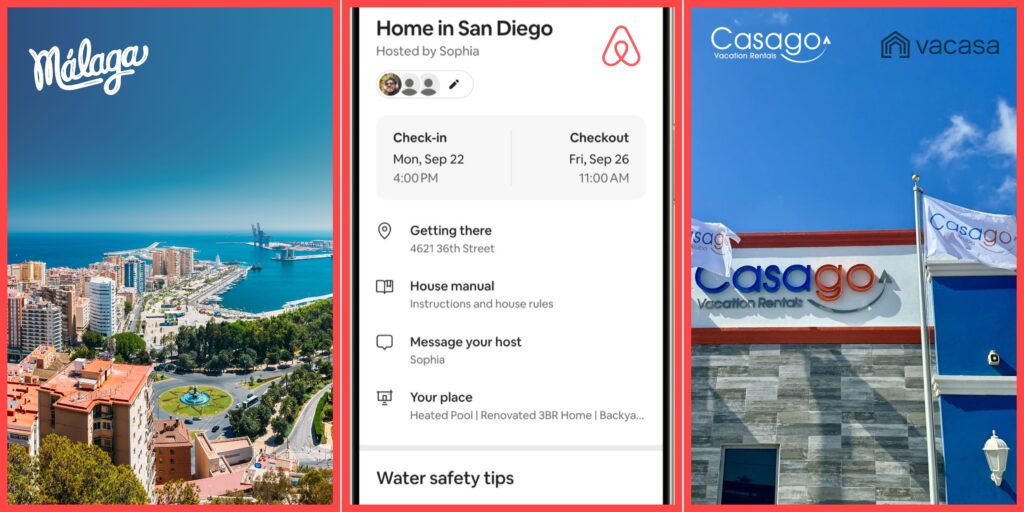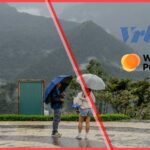Málaga Freezes New Tourist Apartment Licenses Until 2027
- The city of Málaga has officially frozen all new licences for tourist apartments until 2027.
- The decision fulfills a promise made by Mayor Francisco de la Torre to curb the rapid growth of short-term rentals (STRs), which have been fueling housing pressures in the capital of the Costa del Sol.
- The freeze stems from amendments to the city’s General Urban Development Plan (PGOU), effectively putting a “pause button” on the sector until either new regulations are introduced or the suspension period ends.
- Málaga currently counts 12,754 licensed tourist flats, though fewer than 9,000 are actively in use, and authorities suspect many more operate without authorisation.
Snigdha’s View:
- The move ties directly into Spain’s wider pushback against over-tourism. Just this summer, protests erupted in Barcelona, Mallorca, and Málaga itself, with locals voicing frustration over rising rents and shrinking housing supply.
- Barcelona has already pledged to eliminate all STRs by 2028, Madrid now only allows them in buildings dedicated solely to tourist use in the historic center, and Alicante has frozen new licences for two years.
- What makes Málaga’s case striking is that it’s one of Europe’s most popular destinations, where tourism is central to the economy.
- This is another strong signal that Spanish cities are moving in lockstep to curb STR growth, even in places where tourism is a major economic driver.
- For property managers, Málaga’s freeze closes the supply pipeline for at least three years. That means no new entrants can legally join the market, while existing operators could face both heightened competition and a more protected position as scarcity limits growth.
- Those hoping to scale portfolios in the city are effectively locked out until 2027.
Airbnb Launches New In-App Water Safety Feature in Partnership with Safe Kids Worldwide
- Airbnb has launched a new in-app feature aimed at educating guests about water safety when staying at listings with pools or near water.
- The feature is framed as part of the company’s broader guest trust and safety initiatives and was developed with Safe Kids Worldwide, a member of Airbnb’s Trust & Safety Advisory Coalition.
- Once a reservation is confirmed, guests receive expert-developed tips on water safety, covering basics like not swimming alone, understanding water depth and access points, knowing emergency procedures, and avoiding alcohol or drugs around water.
- Alongside this, Airbnb surfaces suggested prompts for guests to ask their hosts, such as what safety equipment is available, how pool or waterfront access is managed, and whether there are specific rules or hazards to be aware of.
- The company is responding to the growing demand for waterfront stays. This summer, Airbnb noted record searches for homes near lakes, beaches, and pools.
Snigdha’s Views:
- This move builds on Airbnb’s previous safety efforts, including pool safety education campaigns, partnerships in the US to help hosts access discounted pool fences.
- Cities across Europe and the US are tightening STR rules, often citing neighborhood disruption and safety concerns.
- By highlighting initiatives like this, Airbnb is attempting to reinforce that the platform takes guest and community safety seriously.
- This could be seen as part of the company’s broader effort to head off stricter rules while improving guest trust.
- For managers, safety is no longer a background detail, it’s now central to the guest experience.
- Documenting water safety, adding visible equipment, and setting clear rules helps address guest concerns and keep you aligned with where platforms like Airbnb are heading.
Casago Expands Again by Absorbing Former Vacasa Homes in California and Texas
- Casago is moving quickly to turn Vacasa’s former markets into opportunities for its local franchisees.
- In the past week, two separate announcements have shown how its franchise-first model is reshaping growth across North America.
- Casago San Diego has expanded its portfolio to manage more than 150 coastal vacation rentals previously operated by Vacasa.
- On the other side of the country, Casago’s Bolivar Vacations franchise has taken over management of 90+ Vacasa homes along the Texas Gulf Coast.
- To avoid disruption during peak season, the 90+ homes managed by Bolivar Vacations on the Texas Gulf Coast will continue to operate under the Vacasa brand through the summer, with existing staff staying in place. A full transition to Bolivar Vacations and Casago is expected later this year.
Snigdha’s Views:
- What we’re seeing now is Casago methodically executing the playbook it set in motion with the Vacasa acquisition.
- The company is actively converting Vacasa’s corporate-managed markets into locally run franchises.
- A few months ago, Casago Big Bear absorbed former Vacasa homes, and now San Diego and Bolivar have followed suit.
- Casago is betting that local operators, supported by a strong brand and infrastructure, can succeed where centralization fell short.
- Vacasa’s collapse exposed the weaknesses of a hyper-centralized model, distant decision-making, inconsistent quality, and weak local ties.
- Casago’s franchise-first approach flips that script, putting markets in the hands of community-rooted leaders who bring credibility, relationships, and accountability.
- For the industry, the short-term effect is clear: instead of a supply vacuum, Vacasa’s homes are being reabsorbed into the market under Casago’s banner. But whether this decentralized approach proves more resilient than Vacasa’s centralized one is still an open question.
Snigdha Parghan is a Content Marketer at RSU by PriceLabs, where she creates articles, manages daily social media, and repurposes news and analysis into podcasts and video content for short-term rental professionals. With a focus on technology, operations, and marketing, Snigdha helps property managers stay informed and adapt to industry shifts.







